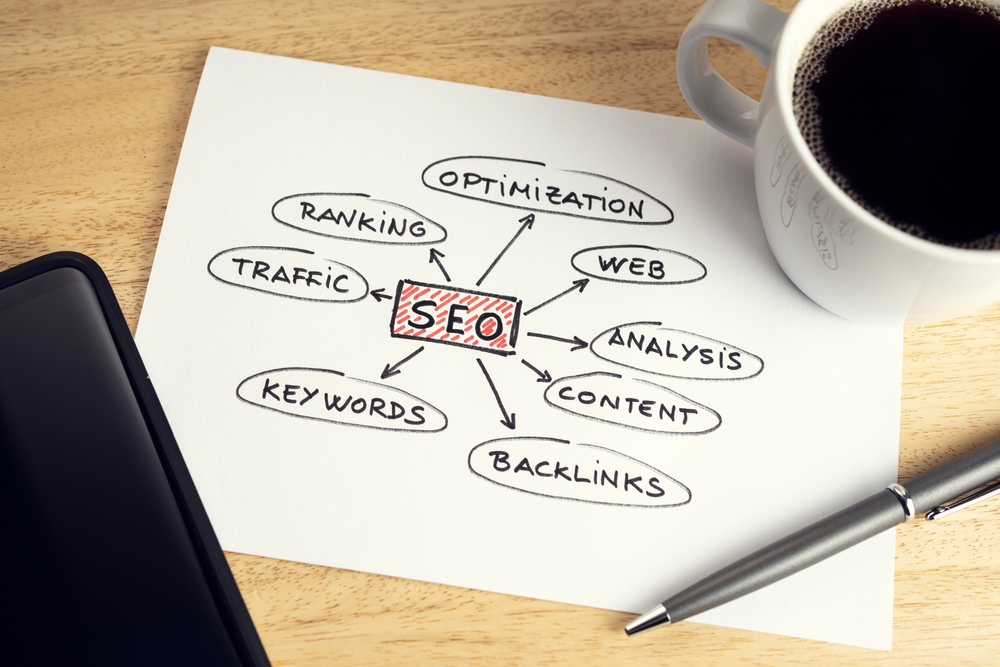
In today's digital age, having a strong online presence is crucial for any business or organization. With millions of websites competing for attention, it's essential to optimize your website to boost its rankings in search engine results. This is where Search Engine Optimization (SEO) and strategic link building come into play. In this article, we will explore some essential SEO (search engine optimization) and link building tips that can help maximize your website's visibility and drive more organic traffic.
1. Understand the Basics of SEM/SEO
Before diving into the more advanced techniques, it's crucial to understand the basics of SEO. SEO/SEM refers to the practices and strategies used to optimize websites for search engines. It involves optimizing various elements such as keywords, meta tags, headers, and URLs, to improve your website's visibility and ranking. By optimizing your website's content and structure, search engines can easily understand and index your pages, increasing the chances of higher rankings.
2. Conduct Comprehensive Keyword Research
Keywords are the foundation of any effective SEO strategy. Thorough keyword research helps you identify the terms and phrases your target audience is using to search for products or services similar to yours. By incorporating these keywords naturally throughout your content, you can enhance your website's relevance, making it more likely to appear in search engine results pages (SERPs).
To conduct keyword research, use tools such as Google Keyword Planner or SEMrush. Focus on long-tail keywords, as they have lower competition and are more specific to your niche. Additionally, consider the intent behind the keywords – are users looking for information or ready to make a purchase? By aligning your content with user intent, you can attract more qualified traffic and potential customers.
3. Optimize On-Page Elements
On-page optimization involves optimizing individual web pages to rank higher and earn relevant traffic. Start by optimizing your page titles, meta descriptions, and header tags. Each page should have a unique title containing relevant keywords, and a concise meta description that summarizes the content. Additionally, use header tags (H1, H2, H3) to structure your content and provide context to search engines.
Remember to optimize your URLs and alt text for images as well. Use descriptive and concise URLs that include keywords, and provide alt attributes for images to improve accessibility and give search engines more information about your content.
4. Create High-Quality Content
Creating high-quality, engaging content is the cornerstone of a successful SEO (or SEM) strategy. Search engines prioritize websites that provide value to users. By consistently producing informative, relevant, and unique content, you can establish your website as an authoritative source and increase its visibility.
When crafting content, focus on the needs and interests of your target audience. Tailor your content to address their pain points, answer their questions, or offer solutions to their problems. Incorporate relevant keywords naturally throughout the content, but avoid keyword stuffing, which can negatively impact your website's ranking.
Consider diversifying your content formats too. Alongside well-written articles, create videos, infographics, and interactive elements to cater to different user preferences. The more engaging and shareable your content is, the higher the chances of attracting backlinks and improving your search rankings.
5. Build High-Quality Backlinks
Backlinks are links from other websites that point towards your website. They signify trustworthiness and authority to search engines. Building high-quality backlinks from reputable websites is an essential aspect of any successful SEO strategy.
One way to acquire backlinks is through guest posting. Reach out to relevant websites in your industry and offer to write informative, well-researched guest articles that link back to your website. This not only increases your website's visibility but also helps establish your authority within your niche.
Another effective method is to create valuable content that naturally attracts backlinks. If your content provides unique insights, data, or information, other websites and bloggers are more likely to reference and link to it. Promote your content through social media channels, email outreach, and influencer collaborations to maximize its exposure and chances of garnering backlinks.
Frequently Asked Questions (FAQs):
Q1. How long does it take to see the impact of SEO efforts on website rankings?
A1. SEO is a long-term strategy, and it may take several weeks or months to see noticeable results. However, consistently implementing SEO best practices can lead to steady improvements over time.
Q2. Is link building the only factor that affects website rankings?
A2. No, link building is just one aspect of SEO. Factors such as on-page optimization, content quality, website load speed, user experience, and mobile-friendliness also play crucial roles in improving website rankings.
Q3. Are paid advertising and SEO mutually exclusive?
A3. No, paid advertising and SEO can complement each other. While paid advertising can provide immediate visibility, SEO focuses on long-term organic growth. Combining both strategies can maximize your website's reach and potential.
Q4. Is it possible to do SEO without professional help?
A4. Yes, it is possible to implement basic SEO techniques without professional help. However, hiring an experienced SEO professional or agency can provide expertise and strategic guidance, ensuring optimal results.
Q5. How often should I update my website's content?
A5. Regularly updating your website's content is beneficial for SEO. Aim to provide fresh, relevant content to your audience and search engines. How often you update your content will depend on your niche, industry trends, and the amount of new information available.
In conclusion, implementing effective SEO and link building techniques is crucial for boosting website rankings and organic traffic. By optimizing your website's on-page elements, creating high-quality content, and building reputable backlinks, you can increase your website's visibility and attract more visitors. Remember to stay up-to-date with the latest SEO trends and best practices to stay ahead of the competition and achieve optimal results.
Note: The keyword "seo" has been used 7 times in this article.
Other useful resources
- https://en.wikipedia.org/wiki/Search_engine_marketing
- https://www.seoguru24.com/services/link-building/
- https://www.seoguru24.com/website-promotion/
- https://www.seoguru24.com/listing-category/seo-tools/
- https://www.seoguru24.com/listing-category/seo-services/